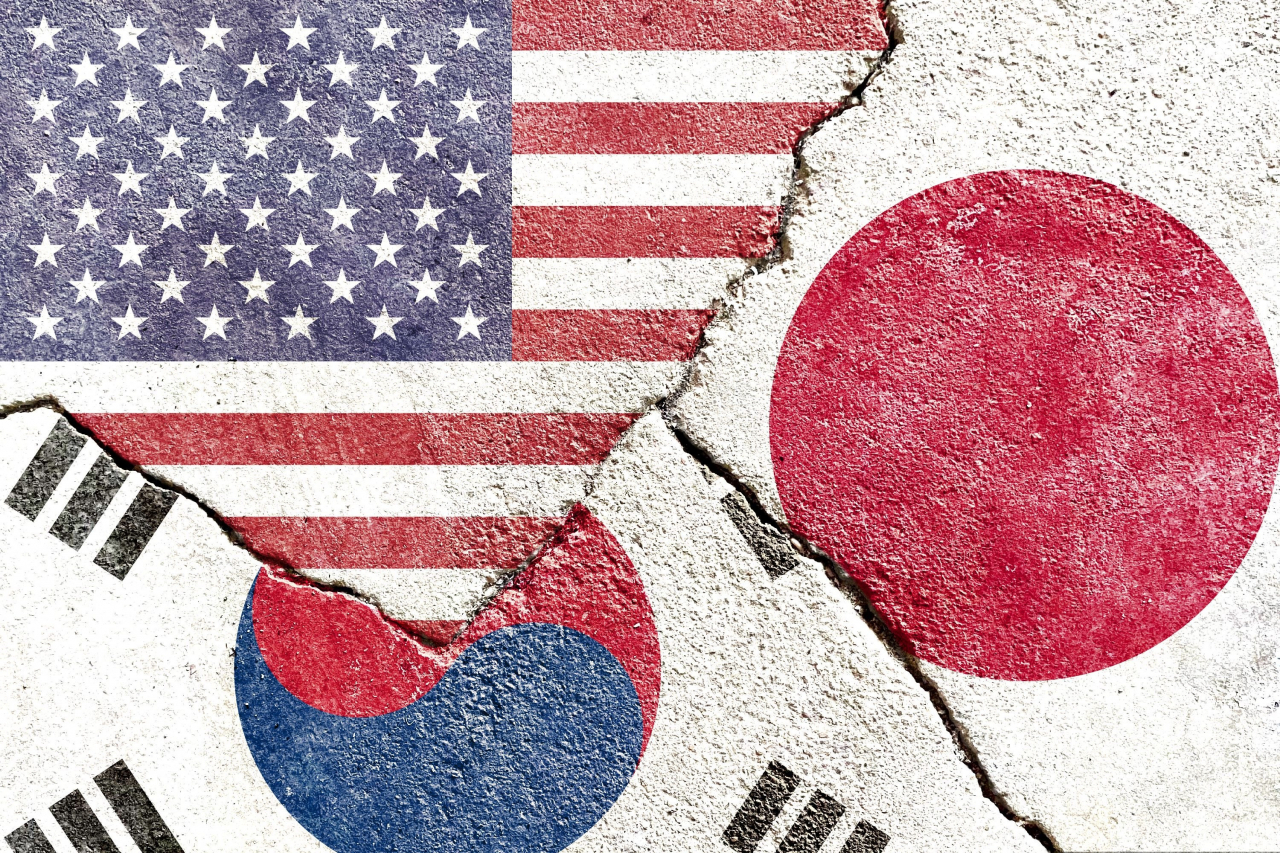Envoys on North Korea discuss aggression curbs
Russian FM to visit N. Korea as follow-up on Kim-Putin summit
By Choi Si-youngPublished : Oct. 16, 2023 - 16:32

The chief nuclear envoys of South Korea, the US and Japan met in Jakarta, Indonesia to discuss curbing North Korea’s growing aggression, in regular two-day talks that started Monday.
The in-person talks, held every three months, serve to coordinate policy aimed at leading North Korea to return to stalled denuclearization negotiations, a goal that has largely remained elusive.
Kim Gunn, special representative for Korean Peninsula peace and security affairs, met with his US counterpart, Sung Kim, who is also ambassador to Indonesia. They will be joined by their Japanese counterpart, Hiroyuki Namazu, on Tuesday.
“Any illegal actions by North Korea that threaten peace and stability in not only the Korean Peninsula but the world will lead the regime to pay a price,” the joint statement by Kim and Sung read, without specifying what consequences the isolated country would face exactly should it continue its aggressive stance.
The get-together comes ahead of a rare, back-to-back high-level meeting between North Korea and Russia this week. Russian Foreign Minister Sergei Lavrov will visit Pyongyang for a two-day trip from Wednesday, a move many see as a follow-up to the summit between their leaders in September.
There, North Korean leader Kim Jong-un and Russian President Vladimir Putin allegedly agreed on arms deals in which Pyongyang would receive advanced weapons technologies from Moscow for providing it with munitions for Russia’s war in Ukraine. The two have denied the claims following the summit, the first of its kind in four years.
But the US said Friday that the Kim regime had delivered the supplies to Russia, warning of fresh sanctions to prevent further exchanges. The White House did not disclose details of what the munitions included.
“Any weapons exchanges between the two are a clear violation of United Nations Security Council resolutions and a threat to peace and stability in the Korean Peninsula,” a senior Foreign Ministry official in Seoul said, adding that Seoul and Washington are on the same page on Moscow-Pyongyang military cooperation. It is “not only illegal but unjust,” South Korean President Yoon Suk Yeol said.
Adding to uncertainty over disarmament efforts is growing pessimism that diplomacy might have lost its appeal to the North. Cho Hyun-dong, South Korea’s ambassador to the US, said such momentum is clearly waning, if not lost.
“I can’t quite tell you exactly how much it’s become harder to disarm North Korea. But the general assessment I’m looking at here is that it is getting more difficult,” Cho told lawmakers during an annual parliamentary audit that took place in Washington on Sunday.
The top envoy referred to the resurfacing discourse on developing homegrown nuclear weapons to fight off North Korea, saying that such voices at home represent “growing security challenges” on the Korean Peninsula.
For a while, Yoon had himself entertained the idea but swore off domestic development in April when he signed a nuclear pact with US President Joe Biden, giving Seoul a bigger say in how Washington manages its nuclear assets in the case of a North Korean strike.
Backing Yoon, Cho underscored bolstering the Nuclear Consultative Group meeting, a regular follow-up set up by the deal to integrate Seoul into Washington’s decision-making process on nuclear weapons. The first meeting took place in Seoul in July.
“Disarmament through dialogue is one of the key pillars we have,” Cho said. “We will give diplomacy every chance it deserves until the last minute.”
Meanwhile, sources confirmed Monday that the US is deploying its nuclear-capable B-52 bomber to South Korea this week in the latest show of force. Conspicuous displays of US strategic weapons are part of what the two allies call extended deterrence, a strategy meant to deter adversaries like the North from using aggression to achieve its military and political aims.
On the same day, the USS Ronald Reagan -- a Nimitz-class nuclear-powered supercarrier -- finished its five-day port call in Busan following Seoul-Washington-Tokyo naval drills. In response, North Korea said it was ready to use its most powerful weapons.
-
Articles by Choi Si-young



















![[Today’s K-pop] Treasure to publish magazine for debut anniversary](http://res.heraldm.com/phpwas/restmb_idxmake.php?idx=642&simg=/content/image/2024/07/26/20240726050551_0.jpg&u=)